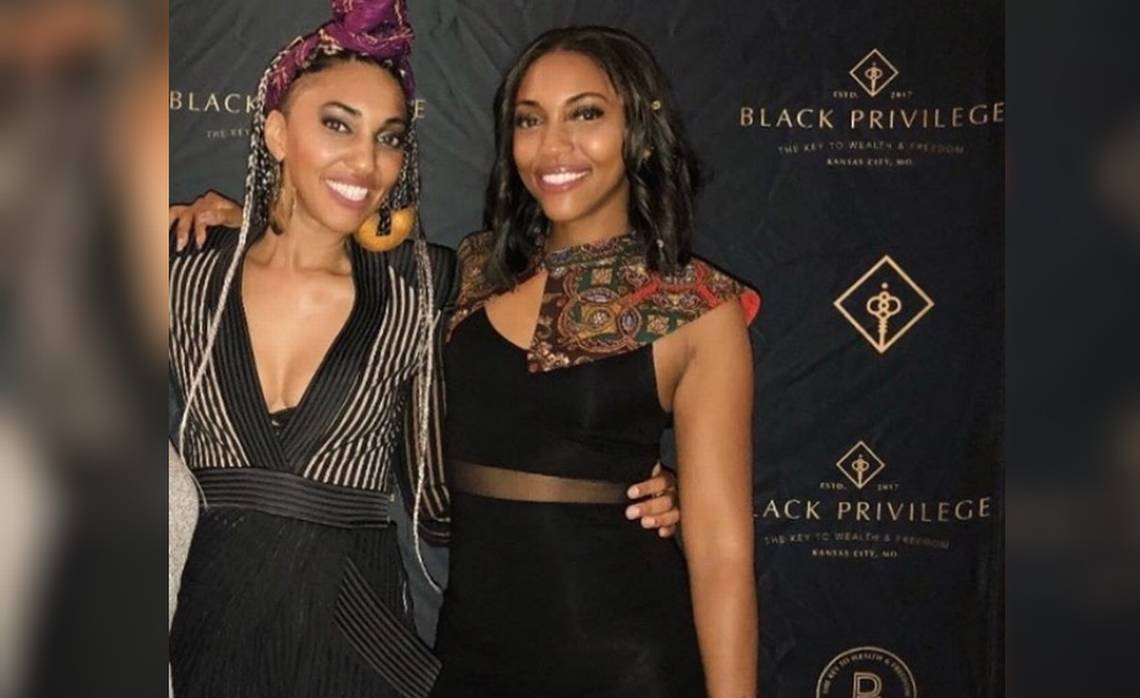By Max Londberg
The Kansas City Star
WWR Article Summary (tl;dr) A new app called “Black Privilege” helps direct consumers to black-owned businesses.
The Kansas City Star
Tyia Adair, a 26-year-old entrepreneur, wants to find black illustrators and graphic designers for her business, A Beautiful, Wonderful Me, which sells children’s books. She’s also looking to patronize black-owned beauty salons to “support my own.”
Marvin Lyman, an African-American like Adair, seeks black contractors and Realtors for partnerships with his new real estate development business, Sankofa EDG, LLC.
And Stephanie Corral, who is Hispanic, wishes to network with other minority business owners such as herself, and particularly black entrepreneurs.
“I’d like to reach out to the black community to build platforms — to strengthen that community,” Corral said.
All three Kansas City-area residents agree that a new app, called Black Privilege, can help close the wealth gap separating black families from those of other races by directing consumers to black-owned businesses.
The nonprofit app officially launched Thursday night at an event in Kansas City’s 18th & Vine Jazz District. It is bankrolled by a wealthy philanthropist from Los Angeles, Morris Young, who selected Kansas City as the location for the app’s pilot phase, with hopes for expansion nationwide.
Young, 69, amassed a significant fortune through real estate investments, according to his daughter, Kimberly Young, who serves as the app’s creative director.
Users of the app can search by category — Automotive, Computers & Electronics, Nightlife, Religion — for black-owned or black-run organizations. It also allows for business-to-business networking, and its organizers say they will offer educational programs for consumers and workshops for business owners.
Kimberly Young spoke Thursday from the stage of the Gem Theater to the approximately 200 people assembled for the event.
“Since the soles of our feet touched the floorboards of slave ships, we’ve been denied privilege,” she said.
To her, lacking privilege is a lot like being a chef without any ingredients or a stove on which to cook.
“Having privilege doesn’t mean your life is easy,” Young said from the stage at the event, “but privilege makes results of hard work possible.”
Reginald K. Gray, the executive director and one of about a dozen Kansas City-based Black Privilege employees, said the goal is to “rebrand blackness.”
“We want blackness to be smart, educated, powerful, entrepreneurial,” he said.
Kaleena James, another Kansas City resident and the director of PR and events for Black Privilege, said the app is a blend of other social media sites. But unlike Facebook, Instagram or LinkedIn, it was built with an explicit social justice underpinning.
“We’re imploring communities to start spending some of their buying power with minority-owned businesses,” James said.
“(The app) gives black business owners a platform to be able to economically grow and to foster some economic wealth.”
James added on Saturday that the app was downloaded by 1,600 users and 400 businesses registered in the first 48 hours after its launch.
Black Privilege drew endorsements from local public figures, including Jermaine Reed, a Kansas City councilman; Armour D. Stephenson III, a pastor at City of Truth church; and Chantelle Garrett, described as a community leader.
Morris Young believes that, in a country where “black poverty was created by our own federal government” through racist policies such as redlining and racially restrictive covenants, change must come from within the black community.
He reeled off figures showing stark economic disparities for blacks and said they were a direct result of black Americans’ exclusion from building wealth through property acquisition in the 20th century.
The Federal Reserve released data last year showing white families have about 10 times the net worth as black families. About 20 percent of black people have zero or negative wealth.
Young also lamented how the Great Recession hit black families more harshly.
“The question is, what do we do now?” Morris Young asked of those in the Gem. “Black unity is a prerequisite for sustainable change. … We need you to make a commitment to contribute your time, talents and above all your purchasing power to make this vision a reality that will create a legacy for future generations.
“…This is a call for group solidarity.”
Black Privilege is free and available on Android and iOS.
It was funded entirely by Young, with the pro bono help of a technology company that organizers wished not to name.
Gray, the executive director, said the nonprofit hopes to generate future funding through donations.
Plans for expansion rely on success of the pilot program in Kansas City. Gray said the goal is for 10 percent of the black community to download the app.
Kimberly Young said the app’s name was chosen to “sound an alarm.”
“We’re at a final frontier of our civil rights,” she said. “We don’t have to push and fight and resist but recognize the … reality of where we are right now and choose to transcend it. We just need to decide to do it and get it done.”














































































































































































































































































































































































